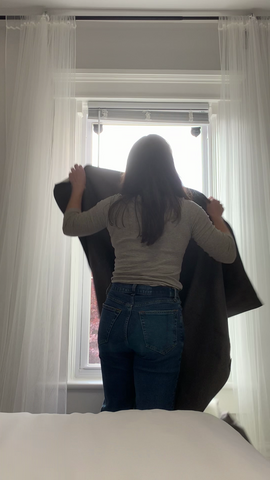Embracing nocturnal habits can bring unique challenges to managing sleep patterns and overall well-being. Whether you're a night owl by nature or your lifestyle necessitates staying up late, it's important to implement strategies that support healthy sleep. In this blog post, we will explore essential tips for managing nocturnal habits effectively.
Creating a personalized sleep routine, managing light exposure, implementing relaxation techniques, and promoting a healthy sleep environment are all key considerations. Additionally, understanding the causes and implications of nocturnal habits can provide valuable insights into their impact on your sleep quality and daily life.
Embracing the Night: Essential Tips for Managing Nocturnal Habits
Nocturnal habits can profoundly affect one's sleep patterns and daily life. If you're someone who thrives in the late-night hours, managing these habits effectively can be crucial to your sleep health. Here are some strategies to consider:
-
Create a personalized sleep routine: A consistent routine can be the foundation for good sleep health. Aim for regular sleep and wake times that align with your natural rhythms.
-
Manage exposure to light: Light has a substantial influence on our circadian rhythms. Use high quality blackout curtains to effectively manage light exposure, especially during the day when it's time for you to sleep.
-
Implement relaxation techniques: Techniques such as meditation, deep breathing, and progressive muscle relaxation can help calm the mind and prepare the body for restful sleep.
-
Promote a healthy sleep environment: Your sleep environment plays a crucial role in your sleep quality. Make it a priority to create a quiet, comfortable, and dark space for sleep.
Understanding Nocturnal Habits: Causes and Implications
Nocturnal habits can be driven by a variety of factors, including biological rhythms, lifestyle factors, or conditions like Delayed Sleep Phase Disorder (DSPD). These habits can significantly impact sleep quality, daytime functioning, and overall well-being.
If you're a night owl due to natural inclinations, it may be part of your circadian rhythm or "internal clock." Alternatively, lifestyle factors such as shift work or social activities can also contribute to the development of nocturnal habits. However, it's important to understand the potential implications of these habits. Disruptions to sleep patterns can affect physical health, mental wellness, productivity, and even interpersonal relationships.
Practical Lifestyle Adjustments for Individuals with Nocturnal Habits
Living with nocturnal habits requires some practical lifestyle adjustments. Here are some strategies that can help:
-
Maintain a consistent sleep schedule: Consistency is key when it comes to sleep health. Even on weekends or days off, try to keep your sleep and wake times consistent.
-
Optimize your sleep environment: Make your sleep environment conducive to restful sleep. This can be achieved by using blackout curtains to create a dark space, maintaining a comfortable temperature, and minimizing noise.
-
Implement relaxation techniques: Incorporating relaxation techniques into your routine can help signal to your body that it's time to sleep. This can be particularly helpful if you find it challenging to wind down after the stimulation of the night.
-
Manage light and technology exposure: Limit exposure to blue light from electronic devices close to your sleep time. Using blackout curtains can also help control light exposure, particularly during the day.
How Blackout Curtains Enhance Sleep Quality for Night Owls
For those embracing nocturnal habits, blackout curtains can be a valuable tool. By effectively blocking out external light, these curtains create a dark, sleep-conducive environment during the day, mimicking the conditions typically associated with night time.
When the body senses darkness, it naturally releases melatonin, a hormone that signals it's time to sleep. Therefore, using 100% blackout curtains can help promote more restful and uninterrupted daytime sleep, which is particularly beneficial for night owls and shift workers.
Night Owls Deserve Good Sleep Too.
Nocturnal habits can significantly impact sleep patterns and overall well-being. However, by implementing practical lifestyle adjustments, you can manage these habits effectively. Maintaining a consistent sleep schedule, optimizing your sleep environment, incorporating relaxation techniques, and managing light and technology exposure are all important strategies to consider.
When it comes to enhancing sleep quality for night owls, blackout curtains can be a game-changer. By creating a dark sleep environment during the day, blackout curtains mimic nighttime conditions and promote more restful sleep. To further support your sleep routine, consider investing in blackout curtains, the most recommended solution by sleep specialists in North America. Use the code WELCOME10 to enjoy a $10 discount and start embracing the night with enhanced sleep quality and well-being.







